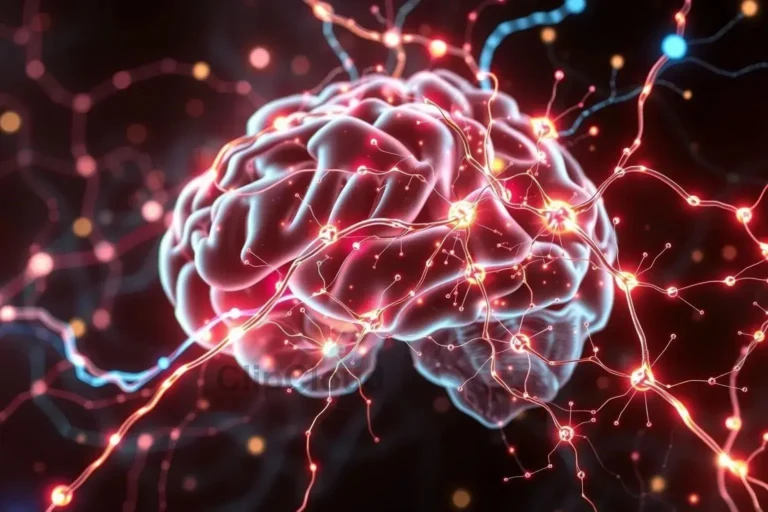Understanding the Mind-Body Connection
The intricate link between our mental and physical states forms the core of the mind-body connection. Our thoughts‚ feelings‚ beliefs‚ and behaviors can profoundly influence our physical health. Conversely‚ our physical health can significantly impact our mental and emotional well-being. This interconnectedness highlights the importance of a holistic approach to health‚ recognizing that nurturing both mind and body is essential for overall wellness. Acknowledging this powerful interplay allows us to harness its potential for healing and thriving.
The Impact of Stress on the Body
Stress‚ a ubiquitous experience in modern life‚ exerts a profound and multifaceted impact on the body. While short-term stress can be adaptive‚ providing a burst of energy to navigate challenges‚ chronic or excessive stress can wreak havoc on various physiological systems. Understanding the intricate ways stress affects the body is crucial for mitigating its detrimental effects and cultivating resilience.
One of the primary pathways through which stress affects the body is the activation of the hypothalamic-pituitary-adrenal (HPA) axis. This complex interplay of hormonal signals leads to the release of cortisol‚ often referred to as the “stress hormone.” While cortisol plays a vital role in regulating various bodily functions‚ prolonged elevation of cortisol levels can have detrimental consequences. It can suppress the immune system‚ making individuals more susceptible to infections and illnesses. Chronically elevated cortisol can also disrupt sleep patterns‚ contribute to weight gain‚ and increase the risk of developing chronic diseases like type 2 diabetes and cardiovascular disease.
Stress also affects the cardiovascular system. The initial surge of adrenaline associated with the “fight-or-flight” response can lead to increased heart rate and blood pressure. Over time‚ chronic stress can contribute to the development of hypertension and atherosclerosis‚ increasing the risk of heart attack and stroke. Furthermore‚ stress can exacerbate existing cardiovascular conditions.
The digestive system is also vulnerable to the effects of stress. Stress can disrupt the delicate balance of gut bacteria‚ leading to digestive issues such as irritable bowel syndrome (IBS)‚ bloating‚ and constipation. It can also affect appetite‚ leading to either overeating or loss of appetite.
The musculoskeletal system is another area impacted by stress. Muscle tension‚ a common response to stress‚ can lead to headaches‚ back pain‚ and other musculoskeletal complaints. Chronic stress can also exacerbate existing pain conditions like arthritis.
Beyond these physiological effects‚ stress can also significantly impact mental and emotional well-being. Chronic stress can contribute to the development of anxiety disorders‚ depression‚ and other mental health challenges. It can also impair cognitive function‚ affecting memory‚ concentration‚ and decision-making abilities.
Recognizing the pervasive impact of stress on the body underscores the importance of implementing stress management techniques. Practices such as mindfulness meditation‚ deep breathing exercises‚ yoga‚ and spending time in nature can help regulate the stress response and promote relaxation. Engaging in regular physical activity‚ prioritizing sleep‚ and cultivating healthy relationships can also bolster resilience to stress.
By understanding the intricate interplay between stress and the body‚ individuals can empower themselves to take proactive steps to mitigate its harmful effects and cultivate a state of well-being.
Cultivating Mindfulness for Well-being
In today’s fast-paced world‚ our minds are often consumed by a constant stream of thoughts‚ worries‚ and distractions. This mental clutter can disconnect us from the present moment and contribute to stress‚ anxiety‚ and a general sense of unease. Cultivating mindfulness‚ the practice of paying attention to the present moment without judgment‚ offers a powerful antidote to this mental chaos and fosters a deeper connection with ourselves and the world around us.
Mindfulness involves intentionally focusing our attention on our present-moment experience‚ including our thoughts‚ feelings‚ bodily sensations‚ and the surrounding environment. Rather than getting swept away by our thoughts or reacting automatically to external stimuli‚ we observe them with curiosity and acceptance‚ without labeling them as good or bad. This non-judgmental awareness allows us to create space between ourselves and our thoughts and emotions‚ reducing their power to dictate our reactions and behaviors.
The benefits of mindfulness for well-being are numerous and well-documented. Regular mindfulness practice has been shown to reduce stress and anxiety‚ improve sleep quality‚ enhance focus and concentration‚ and promote emotional regulation. By anchoring us in the present moment‚ mindfulness helps us break free from the cycle of rumination about the past or worrying about the future‚ which can fuel negative emotions and contribute to mental distress.
Mindfulness can be cultivated through various practices‚ including formal meditation and informal mindfulness exercises. Formal meditation involves setting aside dedicated time to practice mindfulness‚ often focusing on the breath‚ bodily sensations‚ or sounds. Informal mindfulness exercises can be integrated into daily life‚ such as paying attention to the sensations of walking‚ eating‚ or washing dishes. Even a few moments of mindful awareness throughout the day can make a significant difference in our overall well-being.
One of the key aspects of mindfulness is self-compassion. As we become more aware of our inner experiences‚ we may encounter difficult emotions or negative thoughts. Mindfulness encourages us to approach these experiences with kindness and understanding‚ recognizing that they are a natural part of the human condition. Self-compassion allows us to embrace our imperfections and cultivate a more supportive and nurturing relationship with ourselves.
Mindfulness is not about emptying the mind or achieving a state of blissful tranquility. It is about developing a greater awareness of our inner and outer world‚ cultivating a sense of presence‚ and learning to respond to life’s challenges with greater wisdom and equanimity. By incorporating mindfulness into our daily lives‚ we can cultivate a deeper sense of peace‚ resilience‚ and well-being.
As we become more mindful‚ we begin to notice the subtle nuances of our experience‚ appreciating the richness and beauty of the present moment. We may find ourselves more attuned to the sights‚ sounds‚ and sensations around us‚ experiencing a greater sense of connection to the natural world. This heightened awareness can bring a sense of joy and wonder to everyday experiences‚ enriching our lives in profound ways.
Ultimately‚ cultivating mindfulness is a journey of self-discovery and growth. It is a practice that requires patience‚ persistence‚ and a willingness to embrace the full spectrum of human experience. By committing to the practice of mindfulness‚ we can unlock the transformative power of the present moment and cultivate a life of greater peace‚ joy‚ and well-being.
Practical Techniques for Mind-Body Harmony
Achieving mind-body harmony is a continuous journey that involves nurturing both our physical and mental well-being. Fortunately‚ a variety of practical techniques can help us cultivate this harmonious connection and enhance our overall sense of balance and vitality. These techniques‚ ranging from movement-based practices to mindful awareness exercises‚ offer accessible and effective ways to integrate the mind and body and promote a deeper sense of well-being.
Movement and Physical Activity: Engaging in regular physical activity is crucial for both physical and mental health. Exercise releases endorphins‚ natural mood boosters that can alleviate stress and enhance feelings of well-being. Whether it’s a brisk walk in nature‚ a yoga class‚ or a dance session‚ finding enjoyable forms of movement can help us connect with our bodies‚ release tension‚ and cultivate a sense of groundedness.
Yoga and Tai Chi: These ancient practices combine physical postures‚ breathing techniques‚ and meditation to promote mind-body integration. Yoga’s focus on stretching‚ strengthening‚ and balancing postures cultivates physical flexibility and strength while calming the mind and reducing stress. Tai chi’s gentle‚ flowing movements promote balance‚ coordination‚ and a sense of inner peace.
Mindful Breathing: Paying attention to our breath is a simple yet powerful way to anchor ourselves in the present moment and calm the nervous system. Deep‚ conscious breathing can help regulate our heart rate‚ reduce muscle tension‚ and quiet the mental chatter that often contributes to stress and anxiety.
Meditation and Mindfulness Practices: Formal meditation practices‚ such as mindfulness meditation or loving-kindness meditation‚ provide dedicated time to cultivate present-moment awareness and cultivate a sense of inner peace. Even short periods of meditation can have significant benefits for reducing stress‚ improving focus‚ and enhancing emotional regulation.
Spending Time in Nature: Connecting with the natural world has been shown to have profound restorative effects on both the mind and body. Spending time outdoors‚ whether it’s a walk in the park‚ gardening‚ or simply sitting under a tree‚ can reduce stress levels‚ improve mood‚ and enhance feelings of well-being.
Nurturing Creative Expression: Engaging in creative activities‚ such as painting‚ writing‚ playing music‚ or dancing‚ can be a powerful way to express ourselves‚ process emotions‚ and connect with our inner world. Creative expression provides an outlet for our thoughts and feelings‚ promoting emotional well-being and fostering a sense of self-discovery.
Cultivating Healthy Sleep Habits: Adequate sleep is essential for both physical and mental health. Prioritizing sleep hygiene‚ such as establishing a regular sleep schedule‚ creating a relaxing bedtime routine‚ and ensuring a comfortable sleep environment‚ can significantly improve sleep quality and contribute to overall well-being.
Connecting with Others: Strong social connections are vital for our mental and emotional health. Nurturing meaningful relationships with family and friends provides a sense of belonging‚ support‚ and connection‚ which can buffer against stress and promote overall well-being.
By incorporating these practical techniques into our daily lives‚ we can cultivate a deeper connection between our minds and bodies‚ fostering a sense of harmony‚ balance‚ and vitality. Remember that the journey towards mind-body harmony is an ongoing process‚ and even small steps can make a significant difference in our overall well-being.






